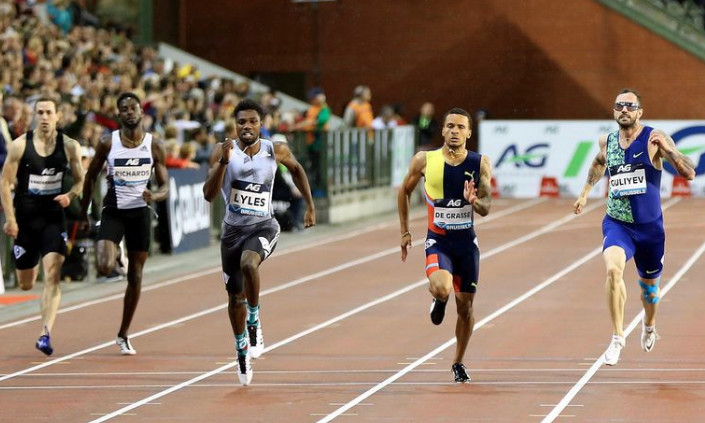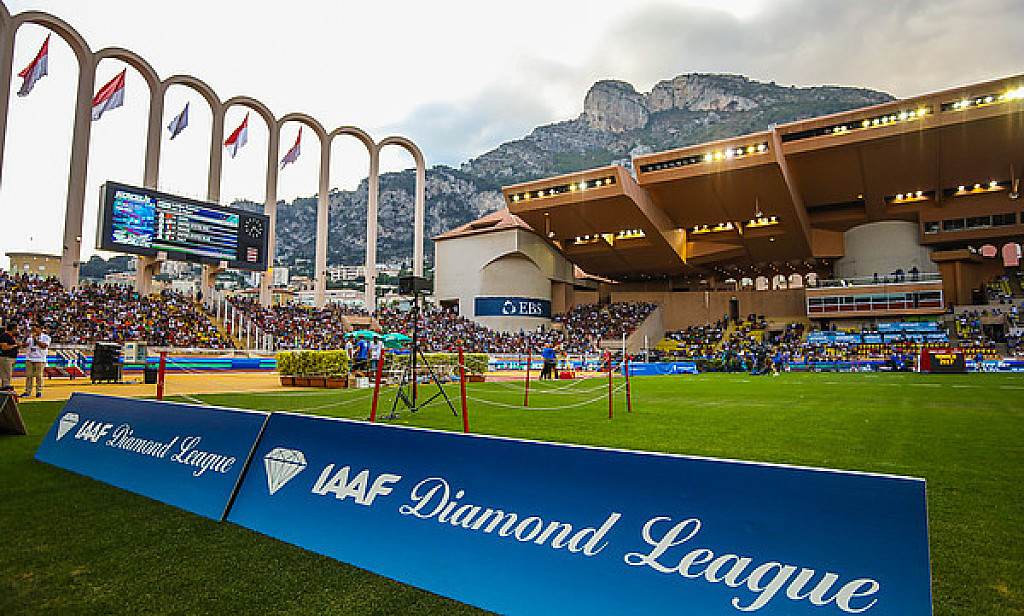Running News Daily
Running News Daily is edited by Bob Anderson. Send your news items to bob@mybestruns.com Advertising opportunities available. Train the Kenyan Way at KATA Kenya and Portugal owned and operated by Bob Anderson. Be sure to catch our movie A Long Run the movie KATA Running Camps and KATA Potato Farms - 31 now open in Kenya! https://kata.ke/
Index to Daily Posts · Sign Up For Updates · Run The World Feed
Diamond League Releases Its Revised Racing Calendar for 2020
A limited series of international meets is slated to begin in late August.
This month, the Diamond League announced a provisional 2020 racing calendar featuring 11 meets that will begin in late August and run until October.

Two months before each meet, the host cities’ respective event organizers will announce the format of the meet and any special guidelines (including social distancing regulations) that athletes should be aware of.
As the COVID-19 pandemic conditions continue to linger across the globe, event organizers are having to make tough decisions on whether to cancel races set for late summer and fall, or to carry them out with careful precautions.
For track athletes, most championship meets—including the U.S. Olympic Track Trials, the Tokyo Olympic Games, and the European Track and Field Championships—have been postponed or canceled because of coronavirus concerns. But the Diamond League and World Athletics still hope that there can be an abridged competitive season this year.
On May 12, the Diamond League, which typically hosts a series of meets in the summer that culminates in a final championship, announced a provisional 2020 racing calendar that will begin in late August and run until October. The calendar contains 11 meets that will be hosted in Monaco, England, and Sweden in August; Switzerland, Belgium, France, Italy, and China in September; and the U.S. (Eugene, Oregon), Qatar, and China in October. Unlike in previous years, athletes competing in the meets will not earn Diamond League points, and there will be no final championship.
“Given the current discrepancies in training and travel opportunities, it would be impossible to ensure a level playing field and a fair qualification system during 2020,” the Diamond League said in the press release.
Instead of a uniform series of events, the 2020 Diamond League meets will likely vary greatly from each other. The press release explained that depending on the host city, some meets might feature one-off exhibition events (meaning just one or a select few events will take place), while others will have a more traditional schedule, albeit with special coronavirus precautions.
Two months before each meet, the host cities’ respective event organizers will announce the format of the meet and any special guidelines that athletes should be aware of. The hope is that the two-month lead time will give athletes time to mentally prepare for the meet, and allow organizers to make formatting adjustments as needed, based on their respective government restrictions.
“Some meeting organizers might choose to stage their events in innovative, alternative formats, and/or under social distancing regulations,” the Diamond League said in the press release.
Of course, the main issue with restarting meets while the pandemic is still ongoing is that gathering athletes and fans together in close proximity increases the risk of virus transmission. To help stymy the spread without cancelling events, other international sports—including baseball in South Korea and soccer in Germany—have prohibited spectators in the stands and enforced strict hygiene measures and testing protocols among players and staff members.
It’s possible that track meets might similarly restrict spectator capacity or ban fans altogether, in order to comply with crowd size restrictions. However, this measure will be a last resort, according to World Athletics president Sebastion Coe.
“Without the crowds, it’s a bad event,” Coe told Runner’s World in April. “I’d rather wait and put events back into the schedule when crowds are able to be there than have events with empty stands.”
It’s ultimately up to the hosting cities to determine what the meets will look like, who can compete, and who can watch—with many of those parameters determined by local government restrictions.
“The uncertainty over future government restrictions and timings in the different host countries requires flexibility and adaptability on the part of meeting organizers when planning, staging and offering competition opportunities to athletes,” the Diamond League said in the press release.
by Runner’s World
Login to leave a comment




